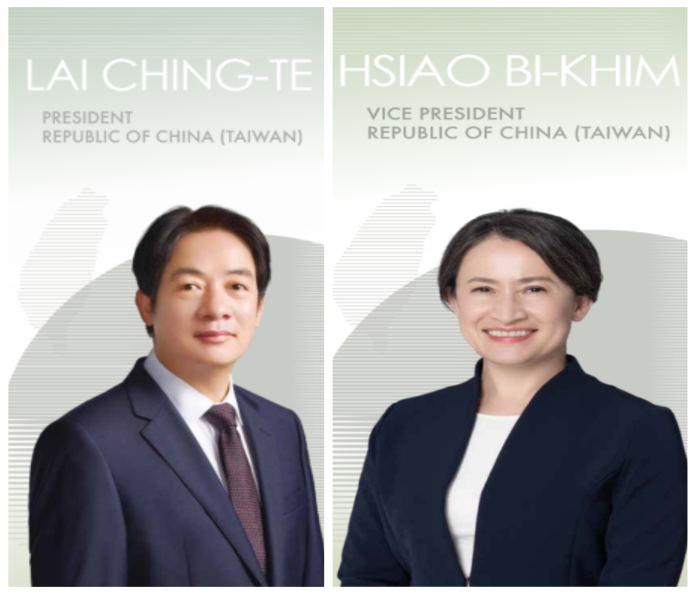TAIPEI, Taiwan, (Taiwan Today) – Lai Ching-te and Hsiao Bi-khim were sworn in as the 16th-term ROC (Taiwan) president and vice president, respectively, May 20 in Taipei City, with Lai pledging to create a democratic, peaceful and prosperous future for the country’s 23 million people.
In his inauguration speech, Lai outlined the new administration’s national development blueprint, which focuses on the development of the semiconductor, artificial intelligence, national defense, security and surveillance and next-generation telecommunications sectors while aiming to foster an even better business investment for inclusive growth.
Building on the legacy of former president Tsai Ing-wen, Lai said the government will unite all segments of society with a steadfast and responsible approach and policies that prioritize the needs of the people.
Equally important, Lai said Taiwan will continue strengthening its democratic resilience as it cooperates with members of the free world to address geopolitical challenges, ensure regional peace and stability and enhance the country’s contributions to the global community.
The new president also reiterated his commitment to maintaining the cross-strait status quo. Stressing that Taiwan and China are not subordinate to each other, he called on Beijing to stop its coercion and engage with Taiwan through dialogue and exchanges rather than confrontation or blockades.
Born in 1959 to a coal mining family in northern Taiwan, Lai received his B.S. from National Taiwan University’s Department of Physical Medicine and Rehabilitation before completing the Post-Bachelor Program in Medical Science at National Cheng Kung University and obtaining a Master of Public Health degree from Harvard University.
Vice president Hsiao Bi-khim was born in 1971 in Kobe, Japan, to a Taiwanese father and an American mother. She graduated from Oberlin College in the US state of Ohio with a Bachelor of Arts in East Asia studies, followed by a Master in Political Science from Columbia University.





